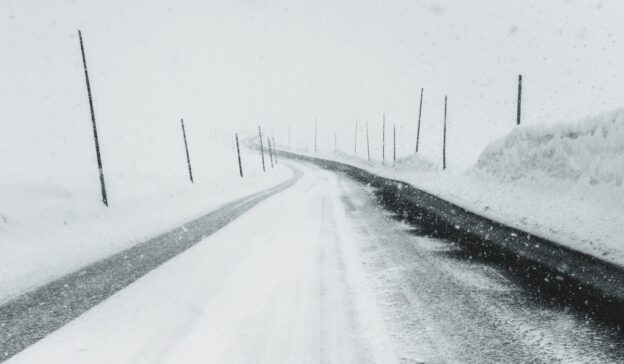“Comfort, comfort my people, says your God. Speak tenderly to Jerusalem, and proclaim to her that her hard service has been completed, that her sin has been paid for, that she has received from the Lord’s hand double for all her sins. A voice of one calling: ‘In the wilderness prepare the way for the Lord; make straight in the desert a highway for our God. Every valley shall be raised up, every mountain and hill made low; the rough ground shall become level, the rugged places a plain. And the glory of the Lord will be revealed, and all people will see it together. For the mouth of the Lord has spoken.’ A voice says, ‘Cry out.’ And I said, ‘What shall I cry?’ ‘All people are like grass, and all their faithfulness is like the flowers of the field. The grass withers and the flowers fall, because the breath of the Lord blows on them. Surely the people are grass. The grass withers and the flowers fall, but the word of our God endures forever.’ You who bring good news to Zion, go up on a high mountain. You who bring good news to Jerusalem, lift up your voice with a shout, lift it up, do not be afraid; say to the towns of Judah, ‘Here is your God!’ See, the Sovereign Lord comes with power, and he rules with a mighty arm. See, his reward is with him, and his recompense accompanies him.” – Isaiah 40:1-10
Comfort. It is such a simple word. Yet, when spoken in certain contexts, it becomes profound. The year 2020 has been one such context. Whether it has been the violence and racial injustice in American towns and streets, the divisions over the national election, or the murder hornets, there hasn’t been much comfort this year. This is to say nothing of the disruptive pandemic we are in. Some people have lost their jobs, others their businesses, still others, their lives. Some readers probably have had Covid, the experience of which, I am told, makes comfort a distance memory. Others have had to care for a loved one with Covid or watched a loved one die from it. During such tragedies, we normally find comfort in the presence of friends and family, but Covid has robbed us even of this. After the year we have had, what would we give to hear that simple word spoken to us: comfort.
The uncertainty and sense of hopelessness of the current moment approaches the context in which these words from the prophet Isaiah were first spoken. The people of Israel, to whom he addressed his message, were in exile in Babylon. They had been forcibly removed from their native land years before. Their homes and crops had been destroyed, their temple burned to the ground, and their king killed along with the rest of the royal line descended from David. Having been rescued from slavery by their God over 1,000 years before, they found themselves back as slaves in a foreign land. “By the rivers of Babylon,” laments the Psalmist, “we sat and wept when we remembered Zion . . . How can we sing the songs of the Lord while in a foreign land?” (Psalm 137:1, 4). The lament of the people of Israel must have had an additional layer of bitterness; they knew their own unfaithfulness caused their exile. The writer of Lamentations writes, “After affliction and harsh labor, Judah has gone into exile. She dwells among the nations; she finds no resting place…The Lord has brought her grief because of her many sins” (Lamentations 1:3, 5). The people of Israel were experiencing the covenant curses for their centuries of unfaithfulness and idolatry: namely, the loss of God’s presence, for which humans were created. Exile. Death.
And then, spoken in the midst of their darkest days, comes that profound word, comfort. “Comfort, comfort my people,” says the Lord through the prophet. Yes, even in exile, even in their unfaithfulness, they were still his people. “Speak tenderly to Jerusalem,” he continues, “and proclaim to her that her hard service has been completed, that her sin has been paid for, that she has received from the Lord’s hand double for all her sins.” If we could put this message more simply, it would be, “It’s over!” Or maybe even, “It is finished.”
What amazing words of hope and comfort! Those of us living through 2020 may understand a bit the unspeakable joy these words would have brought the exiles. How many internet memes and discussions are devoted to what we all will do, when this pandemic is over? How wonderful will it be, to be among friends and family again without fear, without masks? How lovely will a simple hug or handshake seem then? To eat at a restaurant, to go to a movie, to go back to work. We long after ten months of a pandemic simply to be able to leave our homes; the Israelites were in exile for 70 years; more than anything, they wanted to just go home.
But the completely unexpected truth about this prophecy is its proclamation that the end of exile would not consist in the Jews going back to their homeland, back to the place where they assumed God was. Rather, exile ends by God coming to them. The prophet says, “A voice of one calling: ‘In the wilderness prepare the way for the Lord; make straight in the desert a highway for our God. Every valley shall be raised up, every mountain and hill made low; the rough ground shall become level, the rugged places a plain. And the glory of the Lord will be revealed, and all people will see it together. For the mouth of the Lord has spoken.’” The highway was not for them to leave; the highway was for God to come.
The Jews didn’t grasp these words when they were first spoken. And so sometime later when they were released from Babylon and a remnant returned to Jerusalem to rebuild the temple, they thought that their exile was over. It wasn’t. Roman soldiers marched in the streets, David’s throne was still empty, and no one saw the glory of God. Most significantly, though they had returned, comfort remained far from them. Their disappointment must have been like ours will inevitably be, when 2020 turns to 2021, and we realize the pandemic has not ended. A random year change or a lighted ball dropping from a building or a presidential election can’t fix anything. The only thing that can fix a broken and hurting world, an exiled and a quarantined people, is God showing up in our midst. And for that, they would have to wait.
Like the exiles, we are in a period of waiting right now, the season of Advent. In the cultural mind with all its cherished traditions, Advent always gets mixed up with Christmas. But the celebration and feasting that is Christmas doesn’t actually start until December 25th. The season of Advent is less about celebration and more about exile, and the Church’s song in this season is less the joyous herald angels singing and more the lamenting cry, “Oh come, oh come Immanuel!” The words of this cherished Advent hymn are not far from the song of the exiles, “By the rivers of Babylon we sat and wept when we remembered Zion.” Thus, Advent focuses us not only on Christ’s first coming 2,000 years ago but also on the hope of his second coming. We are reminded in this season that though Christ has already come, all is not well. Our world is still broken and hurting and we still long for Christ’s full presence. And so we wait.
Thanks be to God that unlike the exiles, we are waiting in this season with the confidence of the children of God, and the comfort of those who know that although not all is well, exile has indeed ended. It didn’t end because the Jews went back to Canaan or because they rebuilt the Temple. Its end is not found in the ceasing of pain or death or in the absence of rulers opposed to the purposes of God. These things are still very much a reality, as 2020 has made all too apparent. Rather, as Isaiah prophesied, exile ended when God came to us, in the very midst of our darkness, in Jesus Christ, the light of the world. It is for this reason that all the Gospels launch readers into John and Jesus’ ministries with the quotation from Isaiah 40 about the God who comes on a highway in the wilderness. About the God who speaks comfort. We know, then, that God is with us in the waiting.
No matter how dark these days are, take comfort in the Gospel’s promise that “the light shines in the darkness and the darkness has not overcome it” (John 1:5).
Featured image courtesy Alexandre Dinaut on Unsplash.



